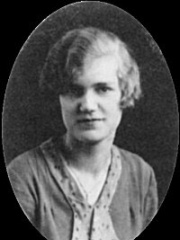


The Most Famous
ECONOMISTS from Denmark
This page contains a list of the greatest Danish Economists. The pantheon dataset contains 414 Economists, 3 of which were born in Denmark. This makes Denmark the birth place of the 21st most number of Economists behind China, and Japan.
Top 3
The following people are considered by Pantheon to be the most legendary Danish Economists of all time. This list of famous Danish Economists is sorted by HPI (Historical Popularity Index), a metric that aggregates information on a biography's online popularity.

1. Inger Andersen (b. 1958)
With an HPI of 56.33, Inger Andersen is the most famous Danish Economist. Her biography has been translated into 18 different languages on wikipedia.
Inger Andersen (born 23 May 1958) is a Danish economist and environmentalist. In February 2019, she was appointed as the executive director of the United Nations Environment Programme. Prior to her appointment, at UNEP, Andersen was Director General of the International Union for Conservation of Nature (IUCN), Vice President for Sustainable Development at the World Bank and Head of the CGIAR Fund Council and then World Bank Vice President for the Middle East and North Africa.

2. Bjørn Lomborg (b. 1965)
With an HPI of 53.70, Bjørn Lomborg is the 2nd most famous Danish Economist. His biography has been translated into 29 different languages.
Bjørn Lomborg (Danish: [ˈpjɶɐ̯ˀn ˈlɔmˌpɒˀ]; born 6 January 1965) is a Danish political scientist, author, and the president of the think tank Copenhagen Consensus Center. He is the former director of the Danish government's Environmental Assessment Institute (EAI) in Copenhagen. He became internationally known for his best-selling book The Skeptical Environmentalist (2001). In 2002, Lomborg and the Environmental Assessment Institute founded the Copenhagen Consensus. In 2004, he was listed as one of Time's 100 most influential people. In his subsequent book, Cool It (2007), and its film adaptation, Lomborg outlined his views on global warming, many of which contradict the scientific consensus on climate change. These views include the claim that the negative impacts are overstated and the opinion that too much emphasis is put on climate change mitigation at the expense of climate change adaptation. Lomborg agrees that global warming is real and man-made and will have a serious impact but enumerates other disagreements with the scientific consensus. Lomborg's views and work have attracted scrutiny from the scientific community. He was formally accused of scientific misconduct over the book The Skeptical Environmentalist. The Danish Committees on Scientific Dishonesty (DSCD) concluded in an evaluation of the book that "one couldn't prove that Lomborg had deliberately been scientifically dishonest, although he had broken the rules of scientific practice in that he interpreted results beyond the conclusions of the authors he cited." The Danish Ministry of Science, Technology and Innovation criticised the procedural aspects of the DCSD investigation. His positions on climate change have been challenged by experts and characterized as cherry picking.

3. Ester Boserup (1910 - 1999)
With an HPI of 51.70, Ester Boserup is the 3rd most famous Danish Economist. Her biography has been translated into 17 different languages.
Ester Boserup (18 May 1910 – 24 September 1999) was a Danish economist. She studied economic and agricultural development, worked at the United Nations as well as other international organizations, and wrote seminal books on agrarian change and the role of women in development. Boserup is known for her theory of agricultural intensification, also known as Boserup's theory, which posits that population change drives the intensity of agricultural production. Her position countered the Malthusian theory that agricultural methods determine population via limits on food supply. Her best-known book on this subject, The Conditions of Agricultural Growth, presents a "dynamic analysis embracing all types of primitive agriculture." (Boserup, E. 1965. p 13) A major point of her book is that "necessity is the mother of invention". Her other major work, Woman's Role in Economic Development, explored the allocation of tasks between men and women, and inaugurated decades of subsequent work connecting issues of gender to those of economic development, pointing out that many economic burdens fell disproportionately on women. In an early review, her book was called "pioneering;" nearly five decades later, it has proved influential, having been cited by thousands of other works. It was her great belief that humanity would always find a way and was quoted in saying "The power of ingenuity would always outmatch that of demand". She also influenced the debate on women in the workforce and human development, and the possibility of better opportunities of work and education for women. Her work earned her three honorary doctorate degrees: one from Wageningen University; one from Brown University; and one from the University of Copenhagen. She was also elected to the US National Academy of Sciences as a Foreign Associate in 1989. The doctorates were in three different fields: agricultural, economic, and human sciences, respectively; the interdisciplinary nature of her work is reflected in these honors, just as it distinguished her career. Of interdisciplinarity, Boserup said: "Somebody should have the courage not to specialise and to look at how one can bring things together. That is what I have tried to do."
People
Pantheon has 3 people classified as Danish economists born between 1910 and 1965. Of these 3, 2 (66.67%) of them are still alive today. The most famous living Danish economists include Inger Andersen, and Bjørn Lomborg. The most famous deceased Danish economists include Ester Boserup.

